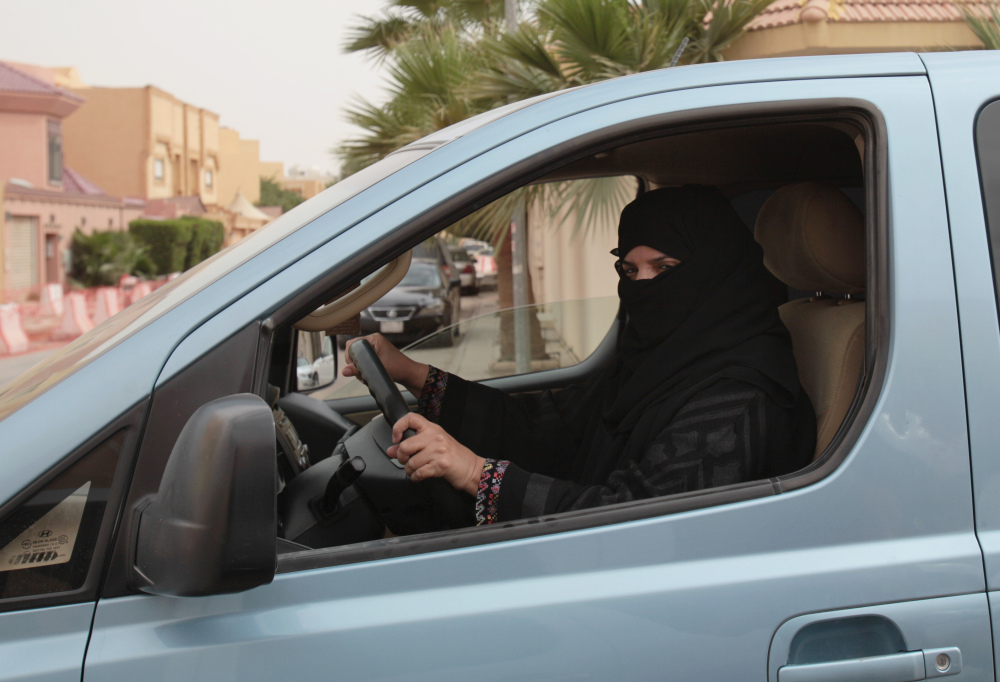It may be true that Saudi Arabia’s decision to allow women to drive is a bid to divert the world’s attention from the country’s other human rights abuses and its war in neighboring Yemen. There might well be reason to be cautious about how the change will be implemented. And there is no question that Saudi women continue to suffer other restrictions in this conservative religious kingdom. None of those caveats, though, should detract from the significance of a decision that frees women from an obstacle in their daily lives.
A decree signed by King Salman, announced last week on state television and at a simultaneous media event in Washington, signals the end of Saudi Arabia’s ignoble distinction of being the only country in the world where women are forbidden to drive. The change is part of an effort by Crown Prince Mohammed bin Salman, heir apparent to his father, to modernize the country and expand its economy. It won’t take effect until June 2018 after yet-to-be-determined rules are established.
That, though, didn’t dampen the jubilation of Saudi women and rights activists who had long campaigned — with some even going to jail — to end this limit on women’s mobility and symbol of their oppression. “Saudi Arabia will never be the same again. The rain begins with a single drop,” was the online comment of Manal al-Sharif, who was arrested in 2011 after a driving protest. “I look at this as more than driving — I see myself as more of a human today than yesterday,” said Salma al-Rashid of the Al Nahda Philanthropic Society for Women. “Now my mother can drive to work or, my sister can drive me out and get my phone fixed. I am truly happy right now,” a 16-year-old girl from Saudi Arabia posted online to the New York Times.
Saudi Arabia, ruled according to sharia law, has consistently been ranked as one of the worst places for gender equality. Handing women the keys to the car doesn’t address the other restrictions under guardianship laws that limit basic freedoms and control conditions under which they can work, study, travel abroad or even undergo certain medical procedures.
Last week’s decree, though, is a step in the right direction. Those who think it rather small may be right, but they should think about how their lives would be different if they didn’t have the ability to go to work or to a restaurant or to the mall or to visit a friend without always having to depend upon someone else — and always someone male.
Editorial by The Washington Post
Copy the Story LinkSend questions/comments to the editors.



Success. Please wait for the page to reload. If the page does not reload within 5 seconds, please refresh the page.
Enter your email and password to access comments.
Hi, to comment on stories you must . This profile is in addition to your subscription and website login.
Already have a commenting profile? .
Invalid username/password.
Please check your email to confirm and complete your registration.
Only subscribers are eligible to post comments. Please subscribe or login first for digital access. Here’s why.
Use the form below to reset your password. When you've submitted your account email, we will send an email with a reset code.